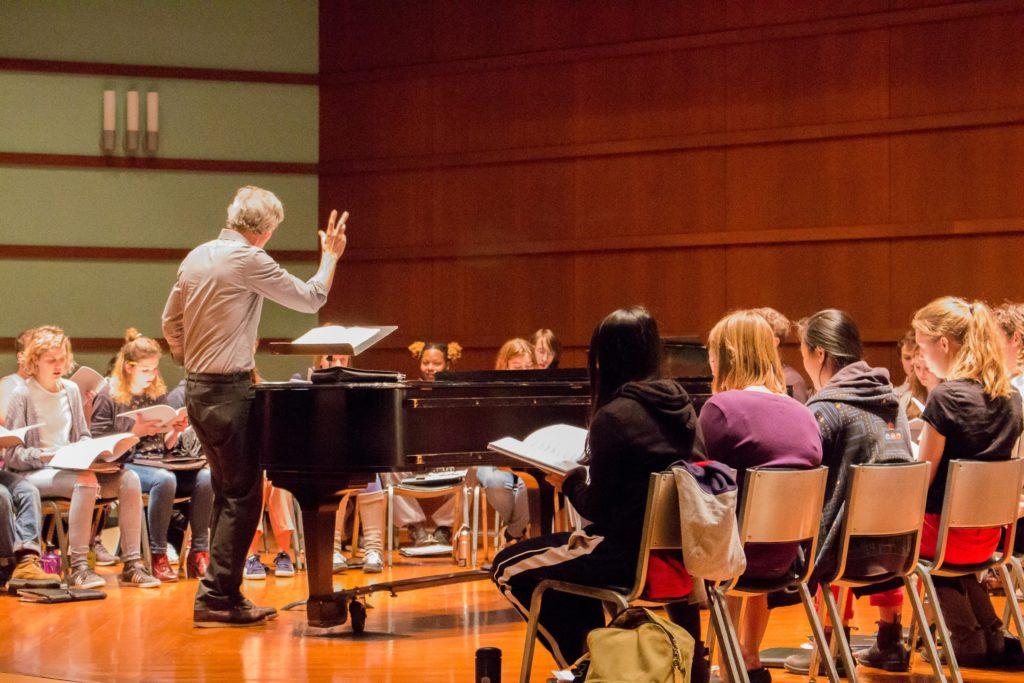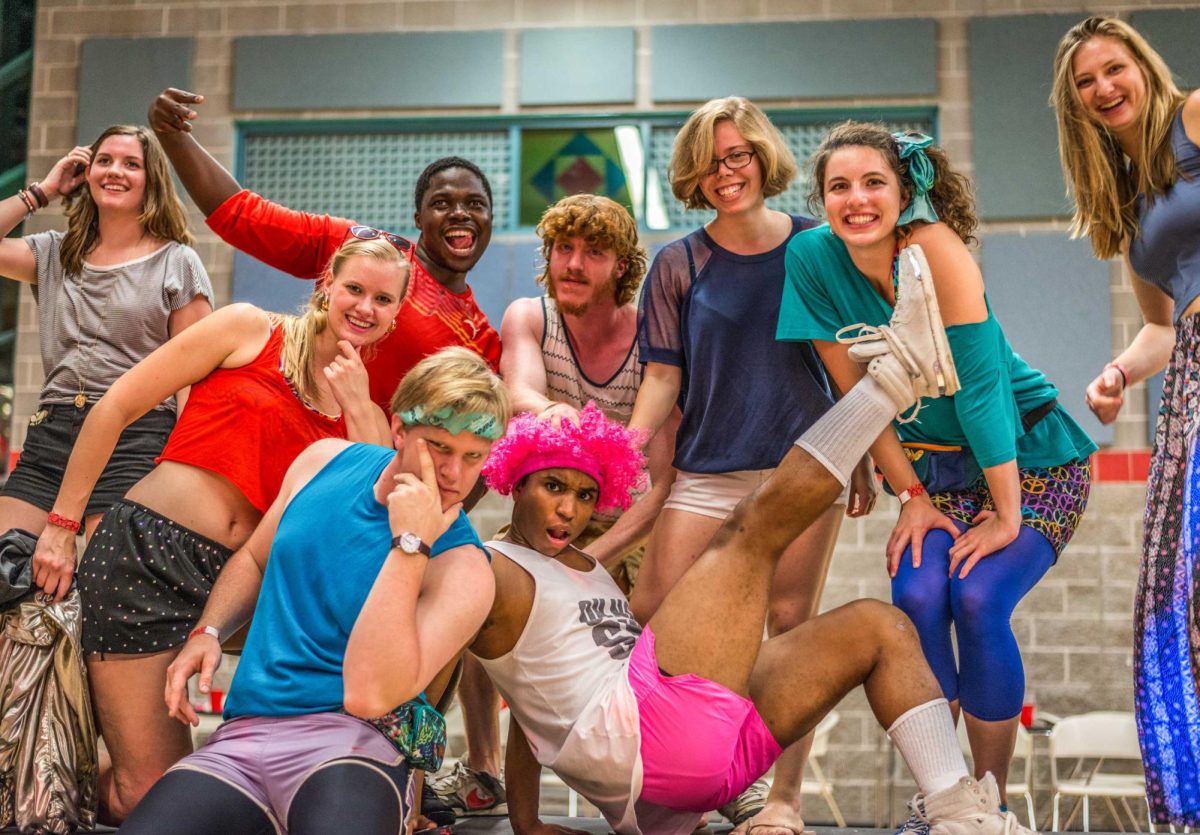Kareem Roustom, the composer of one of the pieces the Grinnell Singers will perform this spring, visited the College this week. The piece they’re working on, “Embroidered Verses,” is comprised of four pieces of Andalusian poetry. The Pew Trust wanted a cross-cultural project that blended Western and Eastern music, and Roustom was commissioned to create this composition for The Crossing, a professional chamber choir.
“[The Pew Trust] suggested something with choir and using Arabic text, which was a little frightening for me because I know that generally choirs tend to be very conservative in their programming … so I was worried that this would be a piece that would be very difficult to have performed again,” Roustom said.
Roustom’s visit is a result of the collaboration between Grinnell Singers and the Al-Bustan Takht ensemble. Al-Bustan is a musical group from Philadelphia who performs with a focus on Arab musical traditions.
“I felt that this particular project was kind of a continuation of what had started in the 19th century. I thought a lot about the structure. … I tried to find ways to blend really contemporary Western writing with traditional writing as well. When you approach something like this, it’s really important to be aware of the tradition and history, which is very old and very deep,” Roustom added.
“Embroidered Verses” is a blend of traditional Arab music and Western music, making it incredibly unique and equally challenging. Additionally, the text of the piece contributes to the difficulty of performing it.
“This was challenging because the text, the poems, are very old. And they’re in classical Arabic. … Everywhere in the Arab world people either speak the local dialect or the modern standard Arabic,” Roustom said. “But these poems are in the classical Arabic, and they date back many hundreds of years to a time where Arabs were in Spain and the Andalusian period.”
Not only is the piece in Arabic — the scale forms are different and traditional Arab instruments are used in the work. These differences make the piece incredibly challenging to master. The challenges that accompany performing “Embroidered Verses” is why the Singers are rehearsing this piece now, despite the fact that their concert is not until February.
“It’s a very different genre of music than we are used to,” said Ahon Gooptu ’21, one of the Grinnell Singers.
“We do the typical choir stuff, Latin, Italian, French, German. … But I think [our conductor] has been really making an effort to broaden the spectrum in the past few years,” said Victoria Robinson ’18, another member of the Singers.
Currently, the Singers are rehearsing with a piano and not the traditional instruments. “It’s just half the picture,” Gooptu said. “We know that it’s going to be very different when the soloists come in. It’s going to give a different feeling to it all.”
Despite the difficulties surrounding “Embroidered Verses,” the Grinnell Singers are making a statement by being the first choir to perform this piece following the performance for The Crossing.
“It’s such an incredible piece and the fact that we’re the first to do it after The Crossing is kind of awesome,” said John Rommereim, Blanche Johnson Professor of Music and conductor of the Grinnell Singers.
The project of bringing Roustom to campus began at the start of this past summer. Rommereim contacted Al-Bustan to assess the feasibility of bringing Roustom to Grinnell College. He then began the task of fundraising efforts to bring Roustom to campus and to employ individuals skilled in playing the traditional Arab instruments featured in the composition.
“It’s just sort of an all-encompassing educational experience,” Rommereim said. “The students are loving it, I can safely say. It’s very melodic and memorable and beautiful music to sing, with some major challenges here and there.”
“I enjoy change and different challenges, and this has definitely been a challenge,” Gooptu said.
However, the Grinnell Singers will not be the only ones to learn from Roustom’s visit—Roustom believes he will too.
“I learn from every performance of my piece and every rehearsal. I’m always a student, so it’s helpful for me to see what’s working, what’s not working,” he said.



















































